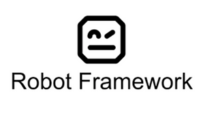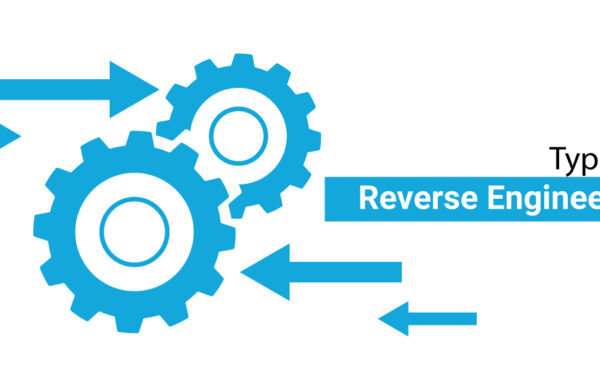As software development continues to evolve and grow in complexity, the importance of comprehensive and efficient testing cannot be overstated. Fortunately, numerous free test automation tools are available that can streamline the testing process and help developers deliver high-quality software products. In this blog, we’ll explore the top 10 free test automation tools for 2024, highlighting their features, benefits, and use cases.
10 Best Free Test Automation Tools
1. Katalon Studio

Katalon Studio is a powerful, user-friendly Free Test Automation Tool for web and mobile apps. It supports multiple scripting languages and offers comprehensive API, web, and mobile testing features. Katalon Studio is popular among testers and developers alike due to its intuitive interface and ability to seamlessly integrate with other tools.
Key Features:
- User-friendly interface
- Supports multiple scripting languages (e.g., Groovy, JavaScript)
- Comprehensive features for API, web, and mobile testing
Benefits:
- Easy to use, even for non-technical users
- Automates repetitive testing tasks, saving time and effort
- Enhances test coverage and accuracy
2. Selenium

Selenium is a well-established open-source test automation framework for web applications. It supports multiple programming languages and offers a wide range of tools for browser automation. Selenium is widely adopted and has a large community of users and contributors.
Key Features:
- Supports multiple programming languages (e.g., Java, Python, C#)
- Comprehensive tools for browser automation (e.g., WebDriver, Grid)
- Supports various testing types (e.g., unit, functional, integration, regression)
Benefits:
- Open-source and free-to-use
- Extensive community support and resources
- Flexible and scalable, making it suitable for various projects
3. Appium

Appium is an open-source tool for automating mobile app testing on iOS and Android platforms. It provides a flexible and robust framework for native, hybrid, and web app testing. Appium is compatible with various scripting languages and test frameworks.
Key Features:
- Supports multiple scripting languages (e.g., Java, Python, JavaScript)
- Compatible with various test frameworks (e.g., JUnit, TestNG, Mocha)
- Supports automation of native, hybrid, and web apps on iOS and Android platforms
Benefits:
- Open-source and free-to-use
- Supports cross-platform testing
- Integrates seamlessly with other tools and frameworks
4. TestComplete

TestComplete is a commercial-free Software Test Automation tool that supports multiple technologies and languages. It offers powerful features for web, mobile, and desktop app testing, including an intuitive record-and-playback functionality and robust scripting capabilities.
Key Features:
- Supports multiple technologies and languages (e.g., web, mobile, desktop)
- Intuitive record-and-playback functionality
- Robust scripting capabilities for advanced testing
Benefits:
- Comprehensive features for various testing needs
- User-friendly interface, ideal for both technical and non-technical users
- Streamlines testing processes, saving time and effort.
5. Robot Framework

Robot Framework is an Open-Source Test Automation, keyword-driven framework. It supports a wide range of technologies, including web, mobile, and API testing. With its simple syntax and extensibility, Robot Framework is popular among testers and developers.
Key Features:
- Supports various technologies (e.g., web, mobile, API)
- Keyword-driven approach
- Extensible and customizable, with a large library of user-created test libraries
Benefits:
- Free and open-source
- Simple and intuitive syntax
- Flexible and adaptable to various projects and requirements
6. Cypress

Cypress is a modern, open-source test automation framework for web applications. It offers real-time testing, which allows for faster feedback and debugging. Cypress provides a user-friendly interface and is widely adopted for end-to-end testing.
Key Features:
- Real-time testing for faster feedback
- Supports JavaScript and modern web technologies (e.g., React, Angular, Vue.js)
- Built-in dashboard for test reporting and analysis
Benefits:
- Open-source and free-to-use
- Speeds up testing and debugging processes.
- Enhances collaboration and visibility with a built-in dashboard.
7. JUnit

JUnit is a popular open-source testing framework for Java applications. It offers a simple and efficient way to write and run tests, making it an ideal choice for unit testing. JUnit is widely used and integrated into many IDEs and build tools.
Key Features:
- A simple and efficient approach to writing and running tests.
- Focused on unit testing for Java applications.
- Integrated into many IDEs and build tools (e.g., Eclipse, IntelliJ IDEA, Maven, Gradle)
Benefits:
- Open-source and free-to-use
- Promotes test-driven development and code quality.
- Seamlessly integrates with existing development environments and workflows.
8. Mocha

Mocha is a free, open-source JavaScript test framework for both front-end and back-end testing. It offers a simple and flexible interface and is widely used for asynchronous testing. Mocha is often used in combination with other tools like Chai for assertions.
Key Features:
- Supports asynchronous testing.
- Compatible with various assertion libraries (e.g., Chai, Expect.js)
- Can be used for both front-end and back-end testing.
Benefits:
- Open-source and free-to-use
- Simple and flexible interface
- Versatile and adaptable to various JavaScript projects
9. PyTest

PyTest is a Free open-source testing tools framework for Python applications. It offers a simple and efficient way to write and run tests, making it a popular choice for unit testing. PyTest is well-known for its assertive style of testing and its capability to work with existing test code.
Key Features:
- A simple and efficient approach to writing and running tests.
- Supports existing test code and integrates with other tools (e.g., PyCharm, Visual Studio Code)
- Promotes test-driven development and code quality.
Benefits:
- Open-source and free-to-use
- Enhances productivity with its simple and efficient testing approach.
- Seamlessly integrates with existing development environments and workflows.
10. Postman

Postman is a free, commercial API testing tool that offers a user-friendly interface for creating, running, and sharing API tests. It supports multiple data formats and offers robust features for API testing, including automated testing and test collections.
Key Features:
- User-friendly interface for creating, running, and sharing API tests.
- Supports various data formats (e.g., JSON, XML)
- Robust features for API testing, including automated testing and test collections.
Benefits:
- Streamlines API testing processes, saving time and effort.
- Enhances collaboration and visibility with built-in sharing features.
- Integrates with other tools and platforms (e.g., Jenkins, Slack) for
Conclusion
In conclusion, these top Free Software Test Automation Tools provide a diverse range of options to streamline your testing processes. Whether you’re working on web, mobile, API, or other types of applications, there’s a tool that fits your needs and helps you deliver high-quality software products. By leveraging these tools and adopting a test-driven development approach, you can enhance code quality, reduce development costs, and increase user satisfaction.





